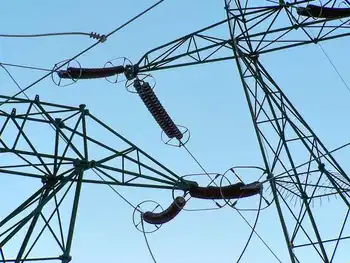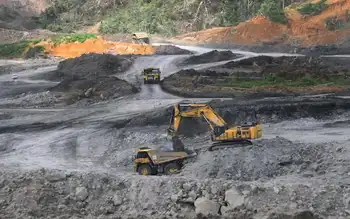Energetic progress on energy in Florida
By St. Petersburg Times
Protective Relay Training - Basic
Our customized live online or in‑person group training can be delivered to your staff at your location.

- Live Online
- 12 hours Instructor-led
- Group Training Available
I'm not sure what was more of a tipping point. Was it the remarkable scene of Republican governors of two bellwether states - California's Arnold Schwarzenegger and Florida's Charlie Crist - teaming up in Miami at Florida's summit on Global Climate Change to force changes not happening at the federal level?
Or was it the politically correct scrambling by Florida's big power companies to appear proactive to a flurry of new state executive orders? Given time to reflect, change-resistant electric utilities may find it tough to digest such dramatic shifts in state energy policy.
Either way, pretty historical stuff is afoot.
One sure-to-be controversial piece of the new plan calls for utilities in the state to produce at least 20 percent of their power from renewable sources of energy such as wind, solar or biomass. It sets tough standards ahead for aggressive cuts in greenhouse gases, an admirable goal sure to be resisted by utilities challenged to supply electricity to a high-growth and power-hungry population.
It was quite revealing that Jeff Lyash, CEO of St. Petersburg's Progress Energy Florida, already suggested that meeting the new standard of generating 20 percent of its electricity from renewable energy sources is unrealistic. Unless, Lyash said, the state was willing to include electricity generated by nuclear power in that 20 percent rule.
Crist wasted little time in his first seven months tackling such populist-styled issues as soaring property insurance rates and unfair property taxes. Now he's set another high bar on matters of global warming. It's hard to tell what will become of all this huffing and puffing, given Crist's uneven success rates.
Promises to lower property insurance rates are crumbling under the financial firepower of the insurance industry. Dramatic legislative overhaul of state property taxes is just under way, but its effect is too far in the future to gauge.
Crist's new energy policy materialized with the signing of three executive orders.With Schwarzenegger's high-profile support, and California acting as a role model for Florida, the two governors on looked like they could co-star in their own film version of Twins.
No less stunning are two Republicans choosing to ignore the policy preferences of President Bush and former Florida Gov. Jeb Bush.
President Bush long resisted global calls for aggressive action to combat global warming, only recently demanding better fuel efficiency from U.S. auto makers.
Jeb Bush signed a bill seven years ago that put an end to auto emissions testing. At the time, Bush said he wanted to save Florida motorists money, despite the testing being credited with removing 60,000 pounds of pollutants a year from the Tampa Bay area's air.
Crist - no stranger to reversing Jeb's policies - would require strict emissions testing for vehicles sold in Florida.
At the least, Crist is proving a catalyst for serious change.











